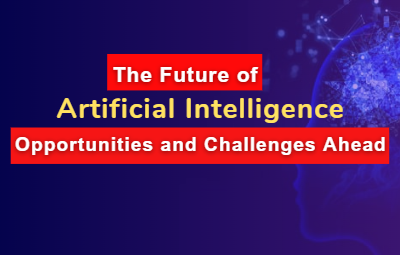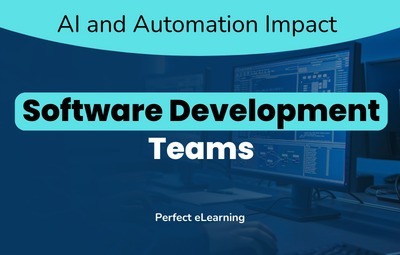

AI is the ability of machines to perform tasks that typically require human intelligence, such as visual perception, speech recognition, decision-making, and language translation. It is made possible by machine learning algorithms that enable machines to learn from data and improve their performance over time. Robotics, automation, big data, and neural networks are some of the technologies that have contributed to the development of AI.
Opportunities
1. Automation
One of the most significant opportunities of AI is automation. AI-powered machines can perform repetitive and mundane tasks that are time-consuming for humans. Automation can lead to increased efficiency, productivity, and cost reduction for businesses.
2. Healthcare
AI has the potential to revolutionize healthcare by enabling faster and more accurate diagnosis, personalized treatment plans, and drug discovery. Machine learning algorithms can analyze vast amounts of medical data and identify patterns that humans may miss.
3. Education
AI can personalize learning and provide students with customized learning experiences. Adaptive learning platforms can analyze a student's strengths and weaknesses and provide tailored feedback and learning materials.
4. Jobs
Contrary to popular belief, AI has the potential to create new job opportunities. As automation takes over repetitive tasks, humans can focus on higher-value work that requires creativity and critical thinking. Additionally, the development and maintenance of AI systems require skilled professionals.
Challenges
1. Ethics
One of the most significant challenges of AI is ethical concerns. AI systems can perpetuate biases and discrimination, and there is a lack of transparency in how algorithms make decisions. We must ensure that AI is developed and used ethically, with fairness and inclusivity at its core.
2. Transparency
Transparency is crucial in ensuring that AI systems are accountable and trustworthy. We must understand how AI algorithms make decisions and be able to audit and explain them to stakeholders.
3. Privacy and Security
AI systems rely on vast amounts of data, which raises concerns about privacy and security. We must ensure that data is collected and used responsibly, with appropriate safeguards in place to protect individuals' privacy.
4. Human-AI Interaction
As AI becomes more prevalent, we must consider how humans will interact with it. We need to ensure that AI systems are intuitive and easy to use, and that humans can understand the decisions made by AI algorithms.
6. Governance
As AI becomes more prevalent, we need to ensure that it is governed responsibly. This includes setting standards and regulations for the development and use of AI systems and ensuring that they align with societal values and priorities.
Conclusion:
The future of AI is exciting, with the potential to revolutionize industries and change the world as we know it. However, there are many challenges ahead that we must address to ensure its success. Ethics, transparency, privacy, security, human-AI interaction, bias, governance, and education are just a few of the challenges that we must tackle. However, if we can overcome these challenges, the opportunities for AI are vast and endless. Automation, healthcare, education, and job creation are just a few of the areas where AI can have a significant impact.
FAQs:
Q. What is artificial intelligence?
Artificial Intelligence (AI) is the ability of machines to perform tasks that typically require human intelligence, such as visual perception, speech recognition, decision-making, and language translation.
Q. What are some of the potential opportunities of AI?
AI has the potential to revolutionize industries such as healthcare, education, and job creation, among others.
Q. What are some of the challenges of AI?
Some of the challenges of AI include ethical concerns, transparency, privacy and security, human-AI interaction, bias, governance, and education.
Perfect eLearning is a tech-enabled education platform that provides IT courses with 100% Internship and Placement support. Perfect eLearning provides both Online classes and Offline classes only in Faridabad.
It provides a wide range of courses in areas such as Artificial Intelligence, Cloud Computing, Data Science, Digital Marketing, Full Stack Web Development, Block Chain, Data Analytics, and Mobile Application Development. Perfect eLearning, with its cutting-edge technology and expert instructors from Adobe, Microsoft, PWC, Google, Amazon, Flipkart, Nestle and Info edge is the perfect place to start your IT education.
Perfect eLearning provides the training and support you need to succeed in today's fast-paced and constantly evolving tech industry, whether you're just starting out or looking to expand your skill set.
There's something here for everyone. Perfect eLearning provides the best online courses as well as complete internship and placement assistance.
Keep Learning, Keep Growing.
If you are confused and need Guidance over choosing the right programming language or right career in the tech industry, you can schedule a free counselling session with Perfect eLearning experts.


